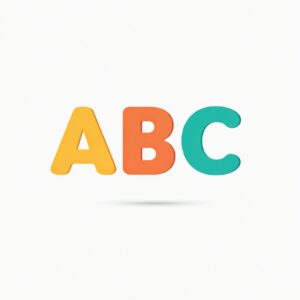Revolutionizing Early Childhood Curriculum Through Technology
Abstract
As digital solutions continue to reshape education, integrating technology into early childhood curriculum design presents new opportunities for personalized and engaging learning. This paper explores how software-driven approaches enhance developmentally appropriate learning experiences, streamline lesson planning, and improve assessment methods. It also highlights the role of accessible and scalable technology in fostering inclusivity and meeting diverse educational needs.
Introduction
The foundation of lifelong learning is laid in early childhood, making curriculum design a critical element of educational success. Traditional approaches to early childhood education have long relied on structured lesson plans and hands-on activities. However, with the rise of technology, digital tools are revolutionizing how educators approach curriculum development. Adaptive learning platforms, interactive lesson planning software, and data-driven assessment models are enabling a more personalized and efficient approach to early education.
Leveraging Technology for Developmentally Appropriate Learning
A developmentally appropriate curriculum must align with young learners’ cognitive, emotional, social, and physical growth. Technology offers several advantages in this area:
- Interactive Learning Environments: Digital platforms provide immersive, play-based experiences that enhance engagement and retention.
- Adaptive Learning Algorithms: AI-powered tools can adjust content complexity based on a child’s learning pace and needs.
- Gamification: Incorporating game mechanics fosters motivation and encourages active participation.
By leveraging these tools, educators can create a more dynamic curriculum that supports varied learning styles while maintaining a structured developmental approach.
Digital Lesson Planning for Educators
The process of lesson planning can be optimized with intuitive software solutions that allow for:
- Efficient Organization: Cloud-based lesson planning tools enable seamless structuring and collaboration.
- Automated Progress Tracking: Digital templates can integrate real-time tracking of developmental milestones.
- Customization & Flexibility: Educators can quickly modify lesson plans to meet the needs of diverse learners.
With digital lesson planning, teachers can focus more on instructional delivery rather than administrative tasks, ultimately enhancing the learning experience for young children.
Tech-Enhanced Assessment Strategies
Assessment is crucial for tracking developmental progress and refining teaching strategies. Digital assessment tools offer:
- Data-Driven Insights: AI-powered analytics help identify learning gaps and suggest personalized interventions.
- Real-Time Feedback: Instant assessment results enable timely adjustments to lesson plans.
- Parent & Teacher Collaboration: Online progress reports create transparency and foster better communication between educators and families.
By implementing tech-enhanced assessment strategies, educators can ensure that children receive targeted support based on their individual learning journeys.
Ensuring Accessibility and Inclusivity
An effective early childhood curriculum must be inclusive and accessible to all learners. Technology can bridge educational gaps through:
- Multi-Language Support: Digital platforms can offer content in multiple languages, catering to diverse linguistic backgrounds.
- Assistive Technology: Speech-to-text, screen readers, and adaptive input methods support children with disabilities.
- Scalable Solutions: Cloud-based platforms enable access to quality education regardless of geographic location or socioeconomic status.
By prioritizing accessibility, technology-driven curriculum design ensures that every child has an equal opportunity to learn and thrive.
Conclusion
Technology is transforming early childhood education by providing innovative solutions for curriculum design, lesson planning, and assessment. By integrating digital tools, educators can create engaging, inclusive, and data-driven learning experiences tailored to young learners’ needs. As software continues to evolve, the future of early education lies in the seamless integration of technology with traditional teaching methods, ensuring a more personalized and impactful learning journey for every child.

